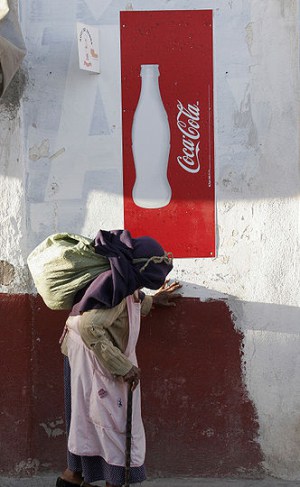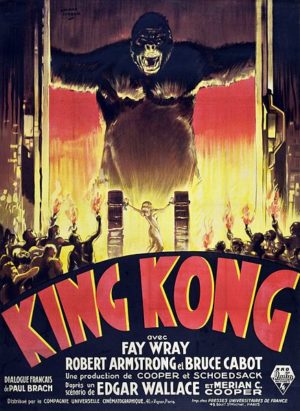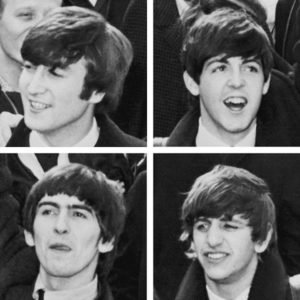These days it?s difficult to imagine the business world without its obligatory Facebook and Twitter pages; almost every company has them as they help one-to-one customer support and other business decisions. Decades ago, however, industry moguls weren?t in the same position. Connecting with the public was difficult and often not even attempted; as a consequence some businesses suffered greatly due to a lack of communication. Here we take a look at half a dozen examples of such bad decisions, and what could have happened had social media been around.
The Coca Cola Re-Brand
 In April of 1985 one of the biggest brands in the world made an almost catastrophic blunder. The decision was made to tamper with the famous recipe following the continued success of rival Pepsi?s marketing plan ?The Pepsi Challenge?, which showing alarming signs the public preferred the taste to Coca Cola. Paranoid Chief Executive Roberto Goizueta launched New Coke in an attempt to win over old and new customers alike. This didn?t go to plan.
In April of 1985 one of the biggest brands in the world made an almost catastrophic blunder. The decision was made to tamper with the famous recipe following the continued success of rival Pepsi?s marketing plan ?The Pepsi Challenge?, which showing alarming signs the public preferred the taste to Coca Cola. Paranoid Chief Executive Roberto Goizueta launched New Coke in an attempt to win over old and new customers alike. This didn?t go to plan.
After three months of boycotting, hostility and general vitriol from customers, the company?s head executives re-released the original version as Coke Classic. To their bemusement this went on to outsell every other drink on the market!
The Solution: It seems, at the time, customers may have preferred the taste of Pepsi, but their loyalty lay with Coca Cola. A simple Twitter campaign could have solved this! ?Remember why you love @CocaCola!? would send the customers hurtling to the shops. Or the soft-drinks giant could simply ask its millions of followers if they would like a new taste range.
Atari?s E.T. Disaster
 In 1982 Steven Spielberg?s film E.T proved a huge success; inevitably, spin-offs began in numerous industries. The burgeoning video games industry wanted in on this, so market leader Atari created an adaptation for their Atari 2600.
In 1982 Steven Spielberg?s film E.T proved a huge success; inevitably, spin-offs began in numerous industries. The burgeoning video games industry wanted in on this, so market leader Atari created an adaptation for their Atari 2600.
The game was rushed through production in five weeks. Meantime, anticipating vast Christmas sales, Atari ordered over four million cartridges to be produced. On its release the game performed well on a commercial level, but was critically maligned, and once customers realised just how awful the game was they sent their copies back in disgust.
With millions of E.T. cartridges finding their way back home to Atari?s headquarters, the dismayed company took the extreme measure of burying them all in the Alamogordo, New Mexico landfill! The failure of E.T. is attributed to their eventual downfall in the videogame market.
The Solution: A number of simple activities could have saved this disaster, but when the worst came to the worst Atari could have avoided the need to use a landfill. Tweets, and a vigorous Facebook campaign, would have informed customers to dispose of the cartridges sustainably to save public face.
Donkey Kong VS King Kong
 In 1982 the growing success of video game company Nintendo attracted the attention of movie giant Universal City Studios. They contended the Japanese firm?s popular arcade game, Donkey Kong, was a breach of their copyright for King Kong.
In 1982 the growing success of video game company Nintendo attracted the attention of movie giant Universal City Studios. They contended the Japanese firm?s popular arcade game, Donkey Kong, was a breach of their copyright for King Kong.
A brief court battle later and Nintendo won after their lawyer, John Kirby, highlighted the rights to King Kong were in the public domain. MCM had not helped their cause by proving the point themselves when releasing a King Kong film decades earlier. Nintendo received a hefty sum from Universal Studios, the latter being criticised for their attitude towards litigation. The incident was also voted one of the ?dumbest? moments in video game history.
The Solution: A round of e-mails, Tweets, Google searching and foresight could have avoided this humiliation for MCM. The moral of the story here is to always research. Thoroughly. Something easier to do than ever thanks to the internet age!
Missing The Beatles
 Decca Records messed up the biggest opportunity in music history, circa 1961.
Decca Records messed up the biggest opportunity in music history, circa 1961.
A Decca executive by the name of Mike Smith had heard a Liverpudlian group, The Beatles, and believed they had displayed significant talent to warrant their signing. They were invited to audition in London, which the band duly did.
Shortly after their New Year?s Day try out, Decca executive Dick Rowe contacted the band?s manager, Brian Epstein, and informed him, ?Not to mince words, Mr. Epstein, but we don?t like your boys? sound. Groups are out; four-piece groups with guitars particularly are finished.?
The Solution: Little would have stopped The Beatles being signed. A campaign of Tweets, Facebook updates, and much more would have raised public awareness for the band. As for Mr. Rowe; a search across the internet could have established just what was really popular!
AOL?s Billion Dollar Blunder
 In 2009 AOL parted company with Time Warner after 8 years in a business merger which proved, unequivocally, to be one of the most disastrous in history.
In 2009 AOL parted company with Time Warner after 8 years in a business merger which proved, unequivocally, to be one of the most disastrous in history.
AOL bought the firm for $160 billion in 2001 and immediately began losing money. Business insiders have pointed out the losses were due to a lack of understanding about the future of the internet. One of the more expensive errors of theirs was to buy out social media site Bebo in 2008. For $850 million! At the time the firm had 40 million users; in the two years following AOL?s takeover this figure plummeted to 12 million. Undeterred, AOL continues to fight on to this day!
The Solution: Using Google Analytics, or SEO Moz, would have shown the stunning growth of Facebook and its effect on other social media formats. Again, thorough research of Bebo and its figures could have averted this disaster.
?
?
?
Alex Morris works for an ink cartridge shop in Manchester where he keeps an eye on Ink and toner cartridges. We haven?t had any strange business decisions? yet.
?
?
Posted on: October 24, 2012
Related Posts
Source: http://www.dreamgrow.com/5-bizarre-business-decisions-social-media-could-have-prevented/
bowling green marysville tornados dr. seuss dr seuss the temptations rush limbaugh sandra fluke
কোন মন্তব্য নেই:
একটি মন্তব্য পোস্ট করুন